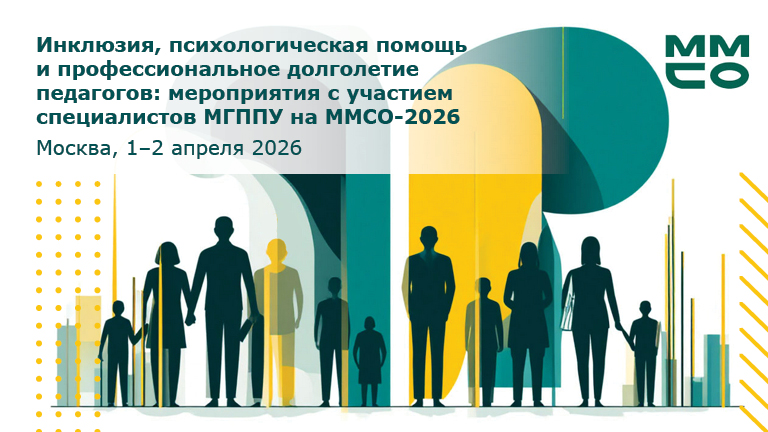
Journals


Psychological-Educational Studies

Counseling Psychology and Psychotherapy

Cultural-Historical Psychology

Social Psychology and Society

Experimental Psychology (Russia)

Journal of Modern Foreign Psychology

Clinical Psychology and Special Education

Psychology and Law

Autism and Developmental Disorders

Bulletin of Practical Psychology of Education

Language and Text

Modelling and Data Analysis

Social Sciences and Childhood

Extreme Psychology and Personal Safety

Vestnik of Saint Petersburg University. Psychology

Consortium Psychiatricum
News

Inclusion, Psychological Support, and Teachers’ Professional Longevity: Events Featuring MSUPE Experts at MMCO-2026 (April 1–2)

Cognitive Stimulation Therapy: Launch of the CST Supervision Club for Specialists

“Social Sciences and Childhood” journal invites authors to submit manuscripts for publication in 2026.

An article as an occasion for discussion: the “Co-authored reading” readers’ club invites authors of psychology journals to dialogue

Webinars of the Program “Step by Step: Traditional Play Returns to Russian Kindergartens”: Participants’ Achievements and New Discoveries

Step by Step: Traditional Play Returns to Kindergartens — Third Webinar of the Joint MSUPE and Ministry of Education Project (January 16)
Editor's Choice
Cognitive psychology of childhood - the invaluable heritage. On the 100th anniversary of L.A. Venger's birth
Context and relevance. The works of L.A. Venger continued the tradition of studying thinking, laid down in Russian psychology by L.S. Vygotsky and A.V. Zaporozhets. At the same time, his research combined Russian psychology of cognitive development with the ideas of foreign scientists, primarily J.…
The relationship between adolescents' codependency levels and family relationships
Context and relevance. Adolescence is a critical period for individuals to gain emotional independence and develop their social identity. The quality of family relationships has a decisive influence on the co-dependency tendencies that develop during this period. Objective. The purpose of this…
Forms and prevalence of physical abuse in dating relationships among South Indian college-going students
Context and relevance. Dating violence, characterized by abusive behaviors within romantic relationships, can occur among individuals of any age. However, little is known about adolescent dating violence in South India, making it an understudied area. The present study addresses this research gap…
The process of ascending from the abstract to the concrete in a school course (on the problem of developing scientific concepts in school education)
Context and relevance. The ascent from the abstract to the concrete as a principle for developing theoretical concepts in teaching is an important principle of modern didactics. However, building courses on this basis requires logical-subject and logical-psychological analysis. Therefore, there are…


